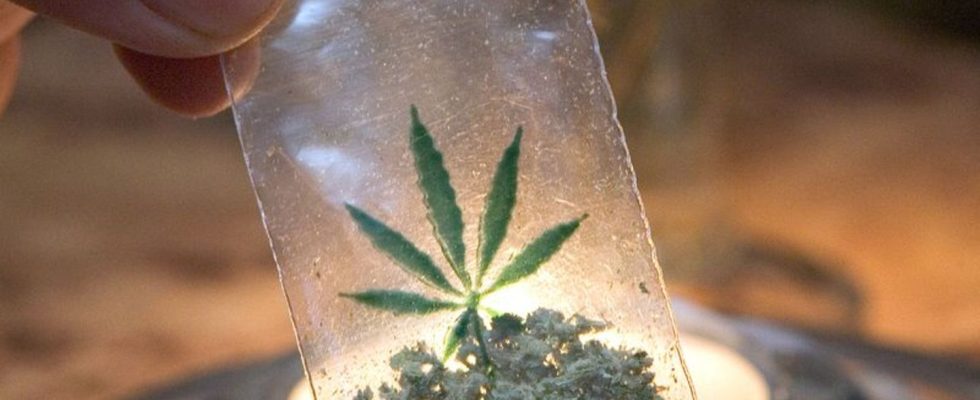Drugs
Netherlands tests sale of legally grown marijuana
The Netherlands is starting an experiment with the trade in legally grown marijuana. photo
© picture alliance / dpa
The Netherlands has long been liberal in its use of soft drugs. The toleration is now followed by a test with the sale of legally grown marijuana. So smoking weed under state supervision?
An experiment with the sale of legally grown marijuana began on Friday Netherlands started. Coffee shops in the southern cities of Tilburg and Breda will be the first to be allowed to sell the legally grown drugs. This is initially a test phase.
Health Minister Ernst Kuipers and the mayors of Tilburg and Breda, Theo Weterings and Paul Depla, gave the starting signal for the experiment in the coffee shop De Baron in Breda in the morning. “By regulating the sale of cannabis, we will gain better insight into the origin of the products and the quality,” said the minister. “In addition, we can better inform consumers about the effects and health risks of cannabis use.” Tilburg’s mayor spoke of a “historic moment” and a step towards the legalization of cannabis.
Often grown in indoor facilities
Cannabis is obtained from the hemp plant. This grows in almost all climate zones and does not have high requirements. In addition to growing plants at home, cultivation in Europe is often carried out in indoor facilities because there is a higher harvest yield and content of the intoxicating active ingredient tetrahydrocannabinol (THC).
In the so-called coffee shops in the Netherlands, the sale and consumption of small amounts of hashish or marijuana is tolerated, but cultivation and wholesale sales are prohibited. Therefore, coffee shops rely on illegal and often criminal wholesalers to obtain their supplies.
To end this situation, the government had agreed to an experiment with state-controlled marijuana cultivation. Ten municipalities are expected to take part. It starts in two cities. For the time being, three marijuana growers are supplying coffee shops there with goods that they grow under state supervision.
Start of the experiment postponed several times
Breeding and stocking in the coffee shops are subject to precise control. During the maximum six-month test phase, coffee shops are allowed to stock up to 500 grams of legally grown cannabis and the same amount from illegal sources. The basic course of toleration when it comes to the sale of cannabis will be maintained during the test. The start of the experiment had been postponed several times. After the experiment, the government in The Hague wants to decide on the full legalization of cannabis.
Germany also wants to relax the handling of cannabis. Until now, cultivation in private or commercial settings was prohibited and, according to the Narcotics Act, was punishable by up to five years in prison or a fine. According to the traffic light government’s plans, this will partly change from April 1, 2024.
The Cannabis Act (CanG) will then make private cultivation possible. While adults aged 18 and over are allowed to possess 25 grams in public spaces, in the private sector up to 50 grams are possible from home cultivation. Adults are allowed to grow up to three plants privately. Cannabis clubs for collective cultivation should be possible on July 1, 2024. According to the Federal Ministry of Health, this permission is limited to “set annual home cultivation and distribution quantities”. However, the necessary Bundestag resolution for the project is still pending.
Health risks due to drug use
A survey presented by the Dutch statistics authority CBS on Thursday in The Hague shows that despite the steps towards the legalization of cannabis, there are health risks. 40 percent of cannabis users said they did not sleep well. Of adult drug users in general, 35 percent reported sleep problems, while among people without drug use the proportion was 23 percent. The National Institute for Public Health (RIVM) of the Netherlands and the Trimbos Institute for Mental Health were involved in the survey.
In addition to sleep problems, drug users also have psychological problems more often than non-users, according to the survey. 25 percent of drug users complained of psychological problems compared to 13 percent of non-users. 29 percent had anxiety compared to 16 percent among non-users and 22 percent reported suffering from depression. This was only 9 percent of people without drug use. Conversely, adults with mental health problems are also more likely to report using drugs than those who do not suffer from these problems, CBS said.

